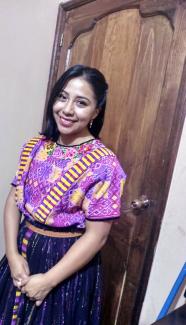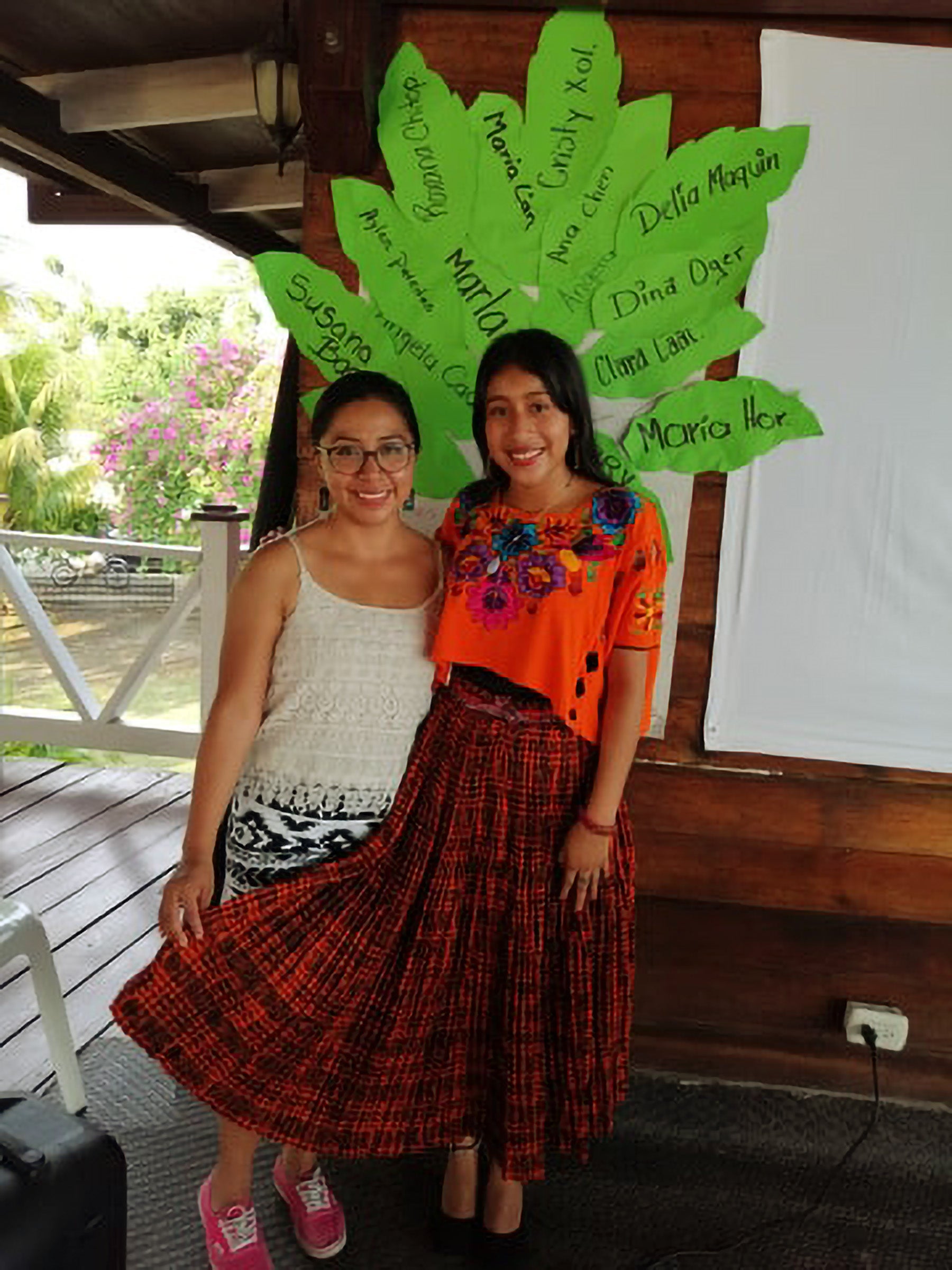
Adriana Hernández (Maya K’ich’e), joined Cultural Survival in April as an executive assistant. She was born in the western highlands of Guatemala in Quetzaltenango, also known as Xela, or Xelaju. “I come from a family of eight. Life with a big family has always been very joyful. One of the greatest memories I have is when my mother, at 45 years of age, was trying to learn how to read and write for the very first time. We both were starting the learning process. I loved going to school. I was curious about nature, plants, and geography, and going to school satisfied my curiosity. Later on, my parents encouraged me to continue studying in high school at a religious institution only for women. I am thankful for this experience, as this is where I started to understand the problems that women face in a conservative society,” she recalls.
While earning her bachelor’s degree in international relations from Rafael Landivar University in Guatemala, Hernández participated in the Global Undergraduate Exchange Program, continuing her studies in political science at Juniata College in Pennsylvania. She later worked as a faculty assistant at Rafael Landívar University, during which time she volunteered in an educational program for at-risk youth and seniors at Instituto Guatemalteco de Educación Radiofónica. “During my time at the university, I became aware that many problems in Guatemala were structural, and that working for our communities was going to be difficult, but not impossible,” she says.
Hernández sees violence as one of the biggest problems affecting Indigenous communities today, especially women. “Violence in Guatemala has roots in a patriarchal system, racism, and exclusion. All these roots together produce abuse and aggression, affecting human dignity and creating conflicts at personal, family, and community levels. The broken social and political fabric is causing our cultural values to be forgotten, creating less harmony and lack of collective sense. Based on my experience, I consider education and access to information vital for our Indigenous communities so we can organize ideas, make new plans, and turn these ideas into actions. We, as Indigenous women, are constantly victims of ‘normalized behaviors’ that have made violence part of Guatemala. If we are aware of the legal resources we can count on, we can protect ourselves. Through leadership workshops like the ones that Cultural Survival promotes, Indigenous women can share a sense of sisterhood and be part of a big family. Cultural Survival’s work in terms of advocacy is vital for our Indigenous communities. It is important to strengthen and support the initiatives of local communities,” she says.

Photo: Adriana Hernández (left) with community media workshop participant in El Estor, Izabal, in May.
Hernández credits her parents for inspiring her the most: “I know the living conditions and the opportunities they had were different and less comfortable than what I had. Nevertheless, they never forgot their goals and aspirations. They instilled in me the belief that education was crucial, that through education we can change oppression and patriarchal systems. It was difficult to change the conservative model in my family, but my parents are eager to continue learning and change some ideas that will benefit us as a family and as a community. I’m very proud that they were able to find their own resources and continue to educate themselves. Some of my fondest moments now are sharing ideas on philosophy and politics with my dad.”
Reflecting on her time so far at Cultural Survival, Hernández says, “I have felt motivated and inspired. It’s incredible to have co-workers who are motivated with one vision. When you are passionate about your job it becomes contagious. I love being in an environment where I feel appreciated as a person, as a woman, and where my achievements, my work, my language, my culture, and my roots are valued.
